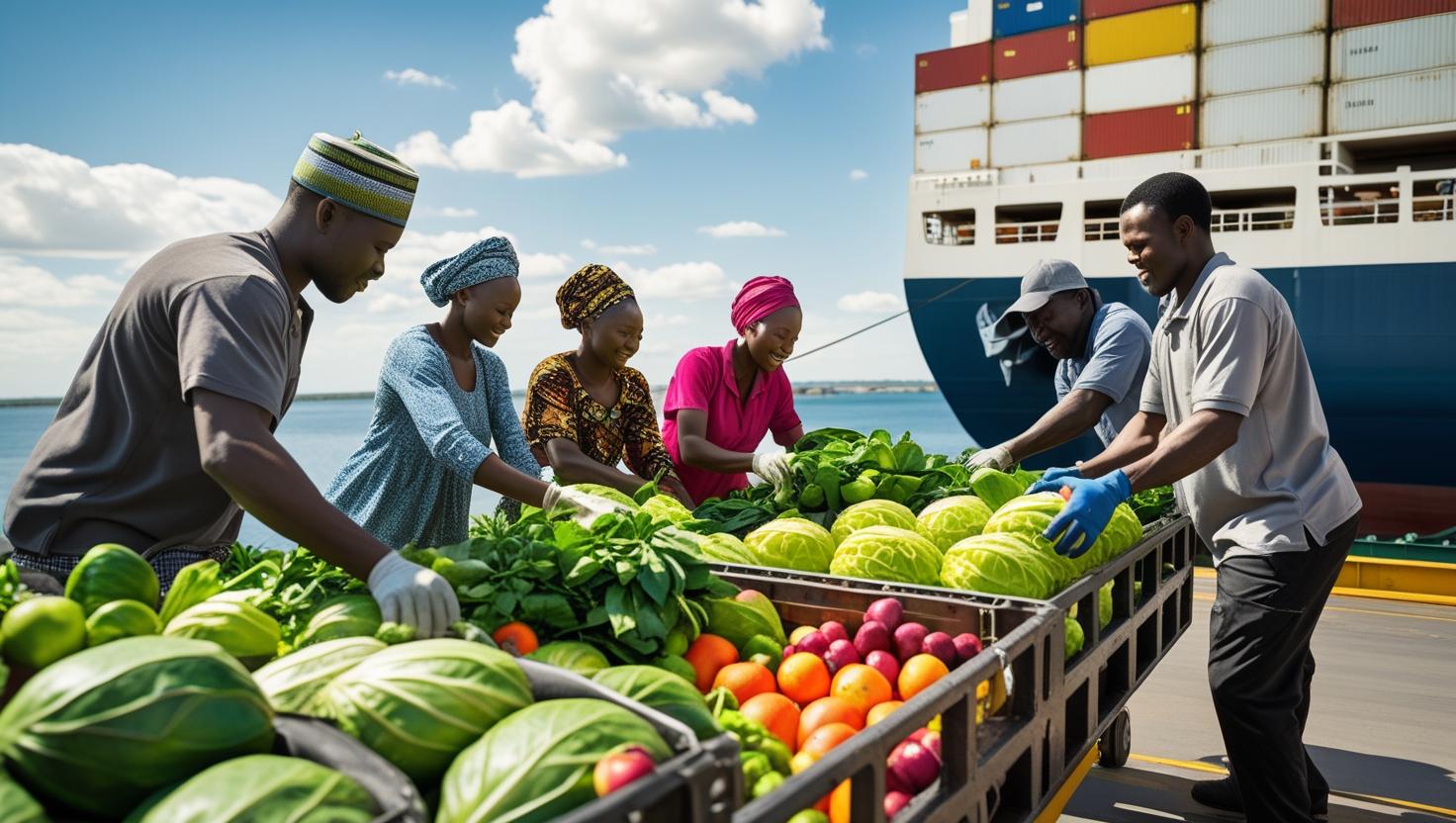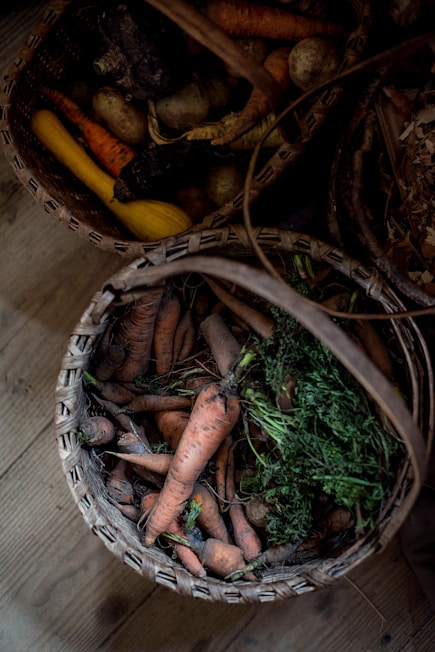
Mastering the Agriculture Ecosystem by Breaking Stereotypes: A New Era of Farming Innovation
Agriculture has long been considered the backbone of society, providing essential food, fiber, and resources that fuel industries worldwide. Yet, despite its critical importance, the agriculture ecosystem has often been constrained by outdated stereotypes, limiting innovation and progress. These stereotypes have shaped perceptions of farmers, the technologies used in agriculture, and the very concept of sustainable farming. It’s time to break these stereotypes and revolutionize the agriculture ecosystem. By challenging these outdated norms, we can unlock new possibilities for growth, sustainability, and inclusivity in agriculture, paving the way for a more resilient and future-proof system.
In this post, we’ll explore how breaking stereotypes in agriculture can lead to a thriving, innovative, and sustainable ecosystem. We’ll dive into the different aspects of the agricultural industry, from technological advancements to inclusivity and environmental sustainability, and highlight how rethinking old paradigms can reshape the future of food production.
The Power of Innovation in Agriculture
One of the most significant stereotypes surrounding agriculture is the idea that it is an old-fashioned, low-tech industry. For decades, agriculture was often portrayed as relying heavily on traditional methods and tools, with little room for innovation. This misconception has led to the underestimation of the agricultural sector’s potential to embrace cutting-edge technologies.
In reality, the modern agriculture ecosystem is transforming through a range of technological innovations. From precision farming and robotics to artificial intelligence (AI) and drones, these advancements have revolutionized how farmers operate and manage their farms. By integrating technology into their practices, farmers can increase efficiency, optimize resource use, and enhance yields while reducing environmental impact.
For example, precision farming uses data-driven approaches to monitor and manage crops with precision, ensuring that each plant gets the right amount of water, nutrients, and attention. This method leads to improved crop health and significantly reduces water and pesticide usage, promoting sustainability. Similarly, AI and machine learning algorithms can predict weather patterns, detect diseases early, and assist farmers in making more informed decisions about crop management.
Breaking the stereotype that agriculture is a low-tech industry opens the door for these advancements to flourish, offering solutions to some of the most pressing challenges facing food production today.
Sustainability and Environmental Impact: Rethinking Agriculture’s Role in the Ecosystem
Another pervasive stereotype in agriculture is that farming is inherently harmful to the environment. While it is true that certain agricultural practices have contributed to environmental degradation, such as deforestation, overuse of chemicals, and unsustainable water use, the narrative around agriculture’s environmental impact needs to change.
Modern farming practices are increasingly focused on sustainability and minimizing negative environmental impacts. With the rise of regenerative agriculture, farmers are adopting practices that not only reduce environmental harm but also improve soil health, increase biodiversity, and capture carbon from the atmosphere. Regenerative techniques include crop rotation, agroforestry, reduced tillage, and the use of cover crops, all of which contribute to building resilient ecosystems.
By breaking the stereotype that agriculture is a detractor from environmental health, we can empower farmers to embrace sustainable farming methods that contribute positively to the ecosystem. It’s essential to promote the idea that farming can be both productive and sustainable, and that farmers have a critical role to play in preserving the environment for future generations.
The Changing Face of Farmers: Diversity and Inclusivity
Historically, the image of a farmer has often been limited to a white male working a large family-owned farm in rural areas. This stereotype has perpetuated the notion that farming is a job suited only for a specific demographic. However, the agricultural industry is experiencing a profound shift, with a growing number of women, minority groups, and young entrepreneurs entering the field.
Women are leading the charge in transforming agriculture, taking on roles as farm owners, agronomists, and agricultural scientists. Across the globe, female farmers are bringing new perspectives, innovative practices, and collaborative approaches to farming. In fact, studies show that increasing gender equality in agriculture can significantly improve farm productivity and increase food security.
Similarly, the rise of urban agriculture and small-scale farming is breaking the mold of traditional farming. Young entrepreneurs are starting small farms in cities, using vertical farming, hydroponics, and aquaponics to produce food locally and sustainably. These innovations are reshaping how we think about agriculture, moving it beyond rural spaces and introducing new methods of food production that benefit both urban and rural communities.
The diversification of farmers challenges the stereotype that farming is only for a select few and opens up opportunities for a more inclusive and equitable agricultural ecosystem. As more people from diverse backgrounds and experiences enter the industry, new ideas, practices, and solutions will emerge, driving innovation and progress.
Food Security and Global Challenges: A Call for Collaboration
Another stereotype that needs to be addressed is the belief that food security challenges can be solved through conventional agricultural practices alone. As the global population continues to rise, and the effects of climate change intensify, it’s clear that we must rethink how we produce, distribute, and consume food.
Breaking the stereotype that agriculture can operate in isolation is crucial. The future of food security will depend on collaboration between governments, farmers, scientists, and businesses to develop innovative solutions to global challenges. This collaboration could involve the development of alternative proteins, such as plant-based or lab-grown meat, which can help address issues related to the sustainability of animal agriculture.
Additionally, food systems must become more resilient to climate change, with farmers adopting adaptive practices to cope with changing weather patterns, such as droughts and floods. Building strong, adaptive food systems requires breaking away from the traditional models of farming and embracing new approaches that focus on sustainability, resource efficiency, and global cooperation.
By addressing food security challenges with a collaborative mindset, the agriculture ecosystem can evolve to meet the demands of a growing population in an environmentally sustainable way.
Agricultural Education: Bridging the Gap Between Old and New Practices
To truly break the stereotypes surrounding agriculture, education is key. The next generation of farmers and agricultural innovators needs access to up-to-date knowledge, cutting-edge tools, and the latest techniques. Traditional agricultural education has often focused on conventional methods, leaving little room for new ideas or interdisciplinary approaches.
By integrating modern agricultural science, technology, and sustainability into agricultural curricula, educational institutions can equip young farmers with the skills they need to succeed in a rapidly changing industry. Additionally, bridging the gap between traditional and modern practices can encourage innovation and foster a deeper understanding of the interconnectedness between farming, the environment, and society.
Agricultural extension programs and online platforms can also help farmers stay informed about the latest trends and technologies in the industry. This ongoing learning process will enable farmers to adapt to new challenges and adopt practices that enhance their productivity, sustainability, and profitability.
Conclusion: Embracing the Future of Agriculture
The agriculture ecosystem is at a pivotal moment in history. By breaking stereotypes and challenging outdated perceptions, we can unlock the full potential of the agricultural industry. Innovation, sustainability, inclusivity, and collaboration are key to mastering the agriculture ecosystem and ensuring that food production meets the needs of a growing, diverse, and changing world.
It’s time to redefine agriculture for the 21st century. By embracing technological advancements, supporting diverse voices, promoting sustainability, and fostering education and collaboration, we can create a more resilient, efficient, and inclusive agriculture ecosystem. Breaking stereotypes is not just about changing perceptions; it’s about creating a better future for farmers, consumers, and the planet.
Together, we can shape an agricultural system that works for everyone, supports the environment, and feeds the world sustainably for generations to come.


